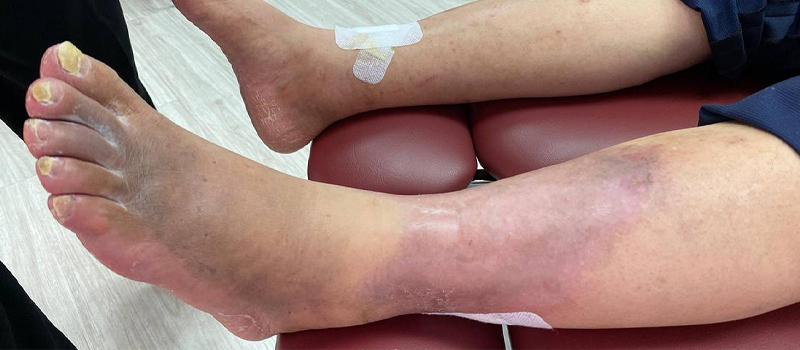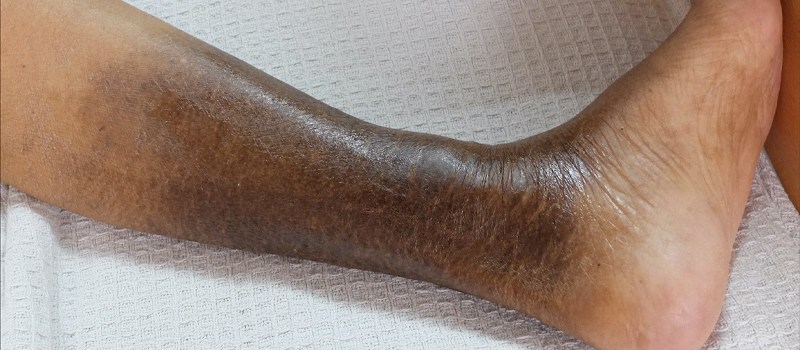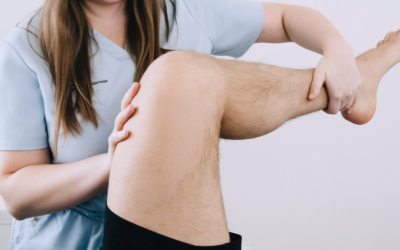Early Detection and Expert Care for Arterial, Venous, and Mixed Ulcers
Vascular wounds are a complex and serious concern, particularly for individuals with underlying circulatory conditions such as peripheral artery disease (PAD) or chronic venous insufficiency (CVI). These wounds, commonly found on the lower extremities, typically heal slowly and can lead to severe complications if left untreated—including infection, tissue death, and even limb amputation.

At Washington Vascular Specialists, we emphasize the importance of early diagnosis and specialized care in managing all types of vascular wounds. Understanding the different categories of vascular ulcers—arterial, venous, mixed, and other less common types—is essential to ensuring timely, targeted treatment that promotes healing and reduces long-term risk.
What Are Vascular Wounds?
Vascular wounds are open sores or ulcers that develop due to impaired blood flow in the arteries or veins. Because oxygen and nutrients are not adequately delivered to the tissues, these wounds often become chronic and are difficult to heal. The most common forms of vascular wounds include:
Arterial Ulcers
Arterial ulcers are caused by reduced arterial blood flow and are frequently associated with peripheral artery disease (PAD). When arteries become narrowed or blocked, oxygen-rich blood cannot reach tissues in the lower legs and feet, leading to ischemia (oxygen deprivation) and tissue breakdown.
Key Characteristics:
- Typically located on the toes, heels, or bony areas of the foot
- Appear “punched out” with well-defined edges
- Wound bed may be dry, pale, or covered with black necrotic tissue
- Skin may be cool, shiny, hairless, and discolored
- Severe pain, especially at night or when legs are elevated
Treatment focuses on restoring blood flow through lifestyle modification, medication, or surgical revascularization, along with wound protection and monitoring.
Venous Ulcers
Venous ulcers are a result of chronic venous insufficiency (CVI)—a condition where damaged vein valves cause blood to pool in the lower legs, raising venous pressure and compromising skin integrity.
Key Characteristics:
- Commonly located on the lower leg or inner ankle
- Wounds are usually shallow with irregular borders
- Moist wound bed, often reddish or covered in yellowish tissue
- Surrounding skin may appear thickened, warm, or darkened
- Swelling in the leg is frequently present
Treatment typically involves compression therapy, leg elevation, wound dressings, and in some cases, surgical correction of underlying vein issues.

Mixed Arterial and Venous Ulcers
Mixed ulcers arise when both arterial and venous systems are compromised, complicating both diagnosis and treatment.
Key Characteristics:
- Features of both arterial and venous ulcers
- Variable appearance, often more resistant to healing
- Pain worsens with both leg elevation and prolonged standing
- Diagnosis requires vascular imaging and testing
Because of the dual pathology, treatment must be carefully balanced to avoid worsening one condition while treating the other. An expert vascular team is essential in these cases.
Other Vascular-Related Wounds
In addition to arterial, venous, and mixed ulcers, there are other vascular wounds that may require specialized care:
- Diabetic foot ulcers: Often caused by a combination of neuropathy and poor circulation
- Pressure ulcers (bedsores): Frequently worsened by inadequate vascular supply, especially in immobile or elderly patients
The Importance of Early Intervention
Vascular wounds are not just surface-level issues—they are symptoms of deeper circulatory problems that require immediate attention. Delays in treatment can result in infection, hospitalization, and limb loss.
At Washington Vascular Specialists, our team of experts provides cutting-edge diagnostics, advanced wound care, and comprehensive treatment plans tailored to your specific vascular condition. We help patients heal faster, avoid complications, and regain quality of life.

Book Your Evaluation Today
If you or a loved one is dealing with a non-healing wound, don’t wait. Schedule a consultation with Washington Vascular Specialists today. Early diagnosis and the right treatment plan can dramatically change the outcome. Call us at 301-891-2500 or book an appointment online now.



